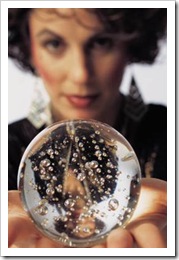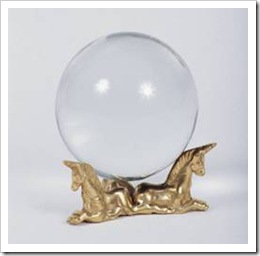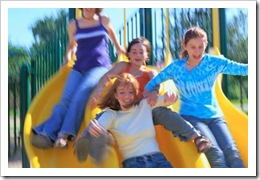
The more success experiences kids have when they’re young the higher their self esteem. Your role as a parent is to provide your children with opportunities to succeed.
Many parents ask me about their kids’ self-esteem. It’s hard for parents to accept that the kids they love so much and worked so hard to raise the best way they could, may still have low self-esteem and that it affects their happiness and success in life.
Parents who are on a quest to have happy kids need to take into consideration that much of the self-esteem is developed during childhood. This takes us back to the early years, which I believe are the most important in our development.
This does not mean that self-esteem cannot be changed at any other time in life by choice. It just means that your child, just like you are doing now, will have to make extra effort to change it later.
As I have said before (see this short video about values), parents want “happiness”, “love”, “confidence”, “success”, “health” and “friendships” for their kids. I believed the research when I read it, and I check it again in each one of my workshops – no parent wishes for their kids to suffer, feel lonely, miserable or unhappy.
Story – The five gifts
 When Princess Ella was born, her proud and happy parents, the queen and the king, were the happiest people in the kingdom. Ella was their first-born and many wizards, scholars, advisers and messengers from neighboring countries came to her birth party to show their respects, and offer the baby a gift.
When Princess Ella was born, her proud and happy parents, the queen and the king, were the happiest people in the kingdom. Ella was their first-born and many wizards, scholars, advisers and messengers from neighboring countries came to her birth party to show their respects, and offer the baby a gift.
Each person went up to the baby’s crib and put a gift next to it:
One brought Princess Ella a dress, woven with diamond thread, so that her inner beauty would shine through her dress.
One brought the princess the book of all knowledge so that she could hold the key to all possibilities.
One brought her a special worm to put in her water fountain. This worm would purify the water she drank and keep her healthy.
One brought the baby a special necklace that shone in the presence of positive loving people to protect her from bad influences.
Then, an old man moved closer to the king and the queen and handed them an empty, clear and beautiful glass bowl.
“This bowl holds all the feelings of your little Princess. When she experiences happy things, a glittery, shiny drop will appear in the bowl. When she has an unhappy experience, a black drop of poison will appear in the bowl”.
Everyone at the party looked at the old man in surprise.
“Her happiness depends on the number of glitter or poison drops she accumulates in the magic bowl. If she has more glitter than poison, she will be happy. If she has more poison than glitter, she will be unhappy”, said the old man, and he smiled at the surprised queen and king. “By the way”, he continued, “It takes 10 glittery drops to cancel out each black poison drop”.
The queen examined the bowl carefully.
“Most people brought gifts for the little Princess. Why did you give this bowl to us?” she asked.
“This bowl will help you see what is in her heart, and all bowls are for the parents to hold, until their kids are strong enough to hold them on their own”, said the old man.
Kids need success experience to build their self-esteem
 For many years, this bowl was my way of knowing what was happening in the hearts of thousands of people I have worked with (kids and grownups). I called it “The Success Experience theory”, and I base all my work with kids, parents and others on it.
For many years, this bowl was my way of knowing what was happening in the hearts of thousands of people I have worked with (kids and grownups). I called it “The Success Experience theory”, and I base all my work with kids, parents and others on it.
All the happiness is there. All the sadness is there. And glitter and poison are still in constant struggle to occupy the bowl for each and every one of us.
Unfortunately (or fortunately, depending on your experience), all people form their self-esteem during childhood. Their caregivers hold the bowl for them during childhood and are in charge of filling it with glitter.
Children with high self-esteem have glittery drops from success experiences:
- Praise
- Trustworthy friends
- Lots of hugs
- Success at school
- Success in hobbies (sport, art, music)
- Respectful speech
- Being heard
- Positive attention
Children with low self-esteem have black poison drops from failure experiences:
 Criticism
Criticism- Heartache from social interaction
- Violence and physical abuse
- Failure at school
- Expectations to be “perfect” in hobbies
- Verbal abuse
- Lack of attention
- Negative comparisons to others
Kids are too young and not skilled enough to fill their own self-esteem bowl. They are vulnerable to the messages of the people around them. Many times, simple things like failing a test, not being invited to a party or even not being able to reach the top of the kitchen counter can be perceived by kids as a negative experience or a failure.
And we, as their parents, must make sure that these experiences do not become black drops, and, if they do, to consciously fill it with another 10 glittery drops of success experience when it happens.
Many years ago, one of the parents I worked with gave me a plastic card with this poem on it. I cherish it with all my heart. Read this poem about the way children learn. I believe this is the key to their self-esteem.
Children Learn What They Live
Dorothy Law Nolte
If children live with criticism, they learn to condemn.
If children live with hostility, they learn to fight.
If children live with fear, they learn to be apprehensive.
If children live with pity, they learn to feel sorry for themselves.
If children live with ridicule, they learn to feel shy.
If children live with jealousy, they learn to feel envy.
If children live with shame, they learn to feel guilty.
If children live with encouragement, they learn confidence.
If children live with tolerance, they learn patience.
If children live with praise, they learn appreciation.
If children live with acceptance, they learn to love.
If children live with approval, they learn to like themselves.
If children live with recognition, they learn it is good to have a goal.
If children live with sharing, they learn generosity.
If children live with honesty, they learn truthfulness.
If children live with fairness, they learn justice.
If children live with kindness and consideration, they learn respect.If children live with security, they learn to have faith in themselves and in those about them.
If children live with friendliness, they learn the world is a nice place in which to live.
To read more of the “Self Esteem Mini-Course”, come back next week or subscribe for updates via RSS or email.
I encourage you to add your comments in the box below and wish your kids a glittery bowl.
Yours,
Ronit
This post is part of the series Self Esteem Mini-Course:
- What Is Self Esteem?
- How School Promotes Low Self Esteem
- Beliefs and Where They Come From
- Social Identity
- Service Your Self-Esteem
- Your Self-Esteem Checklist
- How to Get Rid of Doubts
- Assertiveness and Self Esteem
- How to Be Assertive
- Beliefs of Assertive People
- Ronit Baras’ Success Experience Theory
- Ms Self Esteem has an Identity Crisis
- 13 Useful Conflict Resolution Steps You Need to Know
- Watch Your language or Lose Your Kids’ Trust
- War Between Two Minds
- What if
- What do I Think?
- Awareness is Half the Solution
- Damaging Kids’ Self Esteem
- Boosting Kids’ Self Esteem
 Criticism
Criticism If children live with approval, they learn to like themselves.
If children live with approval, they learn to like themselves.










